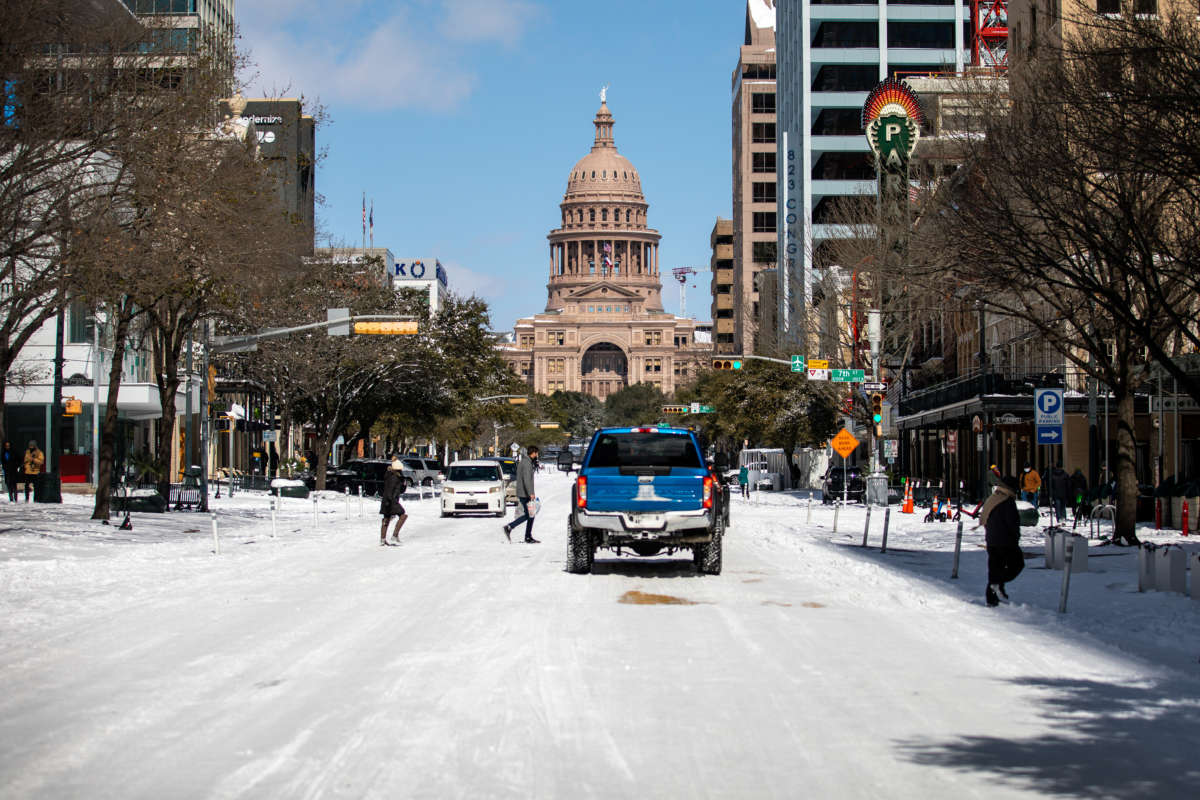On Tuesday, millions of Texans woke up to find themselves without power as unusually cold conditions for the state knocked out the state’s power grid.
The blackouts began on Monday when the state grappled with a winter storm and record low temperatures. Over 4.3 million people in Texas remain without power as the state’s power grid struggles to keep up with high demand.
The Electric Reliability Council of Texas (ERCOT), which operates the state’s grid, had originally announced 45-minute rolling blackouts starting around 1:25 a.m. in order to conserve energy. But the blackouts instead extended throughout the day and into Tuesday, and there is still uncertainty about when they will end.
On Friday, President Joe Biden approved Texas Gov. Greg Abbott’s request for a federal state of emergency to be applied in the state. Ron Klain, Biden’s chief of staff, said on Tuesday that the White House is in communication with Texas and other states affected by the winter weather. Abbott has also deployed the National Guard to assist local authorities.
Unlike the rest of the country, which operates on two large interstate electric grids, Texas has its own grid. They established this independence in order to avoid federal regulators. Governor Abbott and officials from ERCOT say that the grid isn’t compromised — it’s the natural gas, coal and nuclear energy plants going offline that has mostly caused the outages, though wind turbines being frozen over also contributed to the problem.
ERCOT is not under the jurisdiction of the Federal Energy Regulatory Commission, and some say that the lack of federal oversight contributed to the blackouts currently affecting millions of citizens.
The grid “limped along on underinvestment and neglect until it finally broke under predictable circumstances,” Ed Hirs, energy fellow at the University of Houston, told the Houston Chronicle. “For more than a decade, generators have not been able to charge what it costs them to produce electricity.”
Officials say that ERCOT and the private electricity generators followed best practices for winterization of the grid and did not anticipate the winter storm. The storm, indeed, is unusual for the state, and the increase in extreme and unusual weather is largely due to climate change. The grid is built for extra capacity but usually only for the hot summers.
Faced with hours without power, many residents in the state were experiencing cold temperatures inside their homes — some report indoor temperatures that are down to 40, even 30 degrees. Below normal house temperatures are a particular risk for elderly residents because they are more susceptible to hypothermia. Diabetes can also decrease an individual’s ability to resist cold temperatures, according to the National Institutes of Health.
As rolling blackouts in California have demonstrated in the past few years, people with disabilities are especially vulnerable when their homes lose power. Refrigerated medications are at risk of going bad and people who rely on electrically powered aids like ventilators risk death if they can’t afford expensive backup generators in case of emergency.
The Texas blackouts are also an issue of equity, some say. Texas Observer reporter Amal Ahmed tweeted that the blackouts will have a compounding effect on poor residents. “When pipes burst, renters will be the ones who have no options, at the mercy of their landlord,” Ahmed said. “Homeowners will have so many more tools at their disposal. That’s how the system is designed: privilege compounds.”
Many localities are opening warming centers for residents without power, but, though some are requiring masks and COVID tests, the lingering concerns over spreading or getting the virus still remain in situations where people are gathering.
Join us in defending the truth before it’s too late
The future of independent journalism is uncertain, and the consequences of losing it are too grave to ignore. To ensure Truthout remains safe, strong, and free, we need to raise $46,000 in the next 7 days. Every dollar raised goes directly toward the costs of producing news you can trust.
Please give what you can — because by supporting us with a tax-deductible donation, you’re not just preserving a source of news, you’re helping to safeguard what’s left of our democracy.
